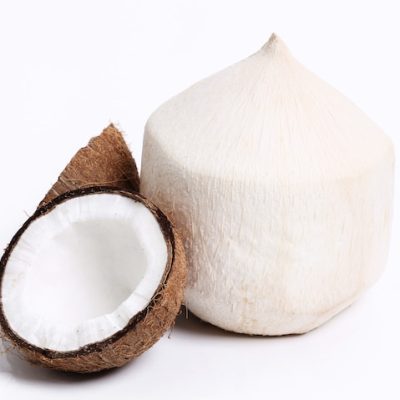Are you unsure about the differences between prebiotics and probiotics? You’ve come to the right place! Gut health is crucial, and both of these elements play important roles in keeping your digestive system functioning well.
Prebiotics and probiotics may sound complicated, but grasping their significance is essential for your overall health. Prebiotics are specific types of fiber that nourish the good bacteria in your gut. Probiotics, on the other hand, are live beneficial bacteria that you can get from certain foods.
Each has its own unique functions, benefits, and dietary sources. Whether you’re just starting to learn about this topic or seeking a more in-depth explanation, we’re here to provide you with straightforward and easy-to-understand information.
This post may contain affiliate links, which help keep this content free. Please read our disclosure for more details.
Prebiotics are vital for your digestive system, providing nourishment for the beneficial bacteria in your gut. They are non-digestible fibers that serve as fuel for these good bacteria. Unlike other fibers that the body breaks down, prebiotics stay intact as they move through the digestive system. You can find them in common foods like bananas, garlic, onions, leeks, and whole grains.
These fibers are crucial for supporting the growth of good bacteria, known as probiotics, in your digestive tract. Prebiotics work by offering a food source for the beneficial bacteria in your gut. These fibers are selectively fermented by good bacteria, allowing them to thrive and multiply. As the good bacteria consume the prebiotics, they produce compounds like short-chain fatty acids (SCFAs), which are beneficial for your body. This process helps maintain a balanced gut environment, promoting the growth of good bacteria while keeping harmful ones in check. Essentially, prebiotics help create a friendly environment for good bacteria to thrive.
The benefits of prebiotics go beyond just supporting good bacteria. By fostering a balanced gut environment, prebiotics contribute to:
– Improved Digestion: The growth of beneficial bacteria helps digest food and absorb nutrients, leading to fewer symptoms of indigestion and better digestive comfort.
– Enhanced Immune Function: Prebiotics aid in producing compounds essential for the immune system. By nurturing healthy gut bacteria, they help your body fight off infections.
– Weight Management: Some studies suggest that prebiotics may assist in weight management by promoting feelings of fullness and supporting metabolic functions.
– Heart Health: The SCFAs produced from fermenting prebiotics may support heart health by helping maintain healthy cholesterol levels.
Understanding the role of prebiotics, how they work in the gut, and the many health benefits they provide can help you make informed dietary choices. Including prebiotic-rich foods in your diet is a simple way to support your overall health.
While prebiotics offer significant benefits for gut health, it’s important to approach them with balance and awareness. Consuming too many prebiotics or introducing them too quickly into your diet may lead to some side effects:
– Gas and Bloating: As beneficial bacteria ferment prebiotics, they produce gases as a by-product. This natural process can lead to increased gas production in the gut, causing discomfort or bloating.
– Abdominal Pain: For some people, a sudden or excessive intake of prebiotics can result in abdominal pain or cramping. This can usually be alleviated by gradually adding prebiotics to your diet.
– Changes in Bowel Habits: Increasing your intake of prebiotics may lead to changes in bowel movements, such as more frequent trips to the bathroom or altered consistency. These changes are typically temporary and can be managed by adjusting your prebiotic intake.
– Interactions with Certain Health Conditions: Individuals with specific digestive disorders or other medical issues may need to be cautious with prebiotics. It’s always best to consult a healthcare provider to tailor your intake to your individual needs and conditions.
– Consideration with Probiotic Supplements: If you are also taking probiotic supplements, the combined effect with prebiotics might amplify some of these side effects. Balancing and carefully monitoring your response can help you find the right mix for you.
Moderation and gradual introduction are key when adding prebiotics to your diet. Paying attention to how your body reacts and making adjustments as needed can help you enjoy the benefits of prebiotics without unwanted side effects.
Probiotics are another essential part of gut health, working alongside prebiotics. They are live beneficial bacteria that play a crucial role in maintaining a healthy digestive system. Probiotics are live microorganisms, specifically beneficial bacteria, that support the overall health of your digestive system.
You can commonly find probiotics in fermented foods like yogurt, sauerkraut, kefir, and kimchi, which can help enhance the existing community of good bacteria in your gut. Probiotics work by maintaining and restoring the balance between good and bad bacteria in the gut. By populating the gut with friendly bacteria, probiotics can outcompete harmful bacteria, helping to maintain a harmonious gut environment. This balance is vital for effective digestion, nutrient absorption, and immune system function.
The health benefits of probiotics are extensive and include:
– Improved Digestive Function: Probiotics assist in digesting certain foods and help absorb essential nutrients, leading to smoother digestion.
– Boosted Immune System: By supporting the balance of good bacteria, probiotics enhance the body’s immune response.
– Mental Health Connections: Emerging research has found links between gut health and mental well-being. Probiotics may help regulate mood and reduce stress.
– Management of Specific Conditions: Probiotics have been studied for their role in managing various gastrointestinal disorders, such as irritable bowel syndrome (IBS) and inflammatory bowel disease (IBD).
While generally considered safe and beneficial, probiotics may come with some considerations:
– Mild Digestive Symptoms: Initially taking probiotics might cause mild bloating or digestive discomfort, which usually subsides as your body adjusts.
– Potential Interactions with Medications: It’s advisable to consult a healthcare provider if you’re on certain medications, as probiotics might interact with them.
– Consideration for Immunocompromised Individuals: People with weakened immune systems should be cautious with probiotics and seek professional guidance to ensure safety.
– Quality and Strain Selection: Not all probiotic supplements are created equal. Choosing the right strain for your specific needs and ensuring product quality is essential.
Understanding the role of probiotics, how they work, their numerous health benefits, and potential side effects enables you to make informed choices about your diet and supplementation. Whether consumed through food or supplements, probiotics can be a valuable part of a holistic approach to gut health.
Though they share similar names and both play vital roles in the digestive system, prebiotics and probiotics are distinct in composition, function, and dietary sources.
– Composition: Prebiotics are non-digestible fibers found in certain plant foods, while probiotics are live beneficial bacteria found in fermented foods and supplements.
– Function: Prebiotics serve as fuel for beneficial bacteria, allowing them to thrive and multiply. Probiotics are the beneficial bacteria themselves, contributing to the balance and function of the gut’s microbial community.
– Sources in Diet: Prebiotics are found in foods like bananas, garlic, and whole grains, while probiotics are commonly found in fermented foods like yogurt, kefir, and sauerkraut.
– Sensitivity to Heat and Processing: Probiotics, being live organisms, are sensitive to heat and harsh processing, while prebiotics are more stable.
– Supplement Availability: Both prebiotics and probiotics are available as supplements, but selecting the right ones requires understanding specific needs and ensuring quality.
In a recent study, women taking probiotics lost 50% more weight than those who did not. Your gut health and how well you absorb nutrients matter. Don’t miss out on getting a daily probiotic.
Prebiotics and probiotics work together in the digestive system:
– Feeding Relationship: Prebiotics nourish the beneficial bacteria in the gut, including those introduced by probiotics. This relationship ensures that good bacteria have the sustenance they need to thrive.
– Balancing Gut Environment: Together, prebiotics and probiotics help maintain a balanced microbial environment in the gut, promoting healthy digestion and overall well-being.
– Enhanced Health Benefits: The combination of prebiotics and probiotics may lead to greater health benefits than they offer individually, including better nutrient absorption, improved immune function, and potential synergistic effects in managing digestive disorders.
While prebiotics and probiotics have distinct characteristics and functions, their collaborative relationship is a key aspect of gut health. Recognizing their differences and how they complement each other provides a holistic perspective on dietary choices and supplementation for supporting digestive well-being.
Prebiotics and probiotics each offer unique benefits, and using them effectively requires understanding how they fit within your individual needs and preferences.
Understanding the specific needs of your gut will help guide your choices:
– Prebiotics: If you want to nourish and support existing good bacteria in your gut, prebiotics can be the right choice. They may be especially helpful for general digestive health and well-being.
– Probiotics: If you need to introduce or replenish beneficial bacteria, such as after taking antibiotics or experiencing digestive disturbances, probiotics may be the solution.
– Combining Both: In many cases, using both prebiotics and probiotics can provide a comprehensive approach to gut health, supporting and maintaining a balanced digestive environment.
The following guidelines can help you consume prebiotics and probiotics:
– Consult a Healthcare Provider: Especially if you have specific health conditions or concerns, consulting with a healthcare provider can provide personalized recommendations.
– Moderation: Balance is key, as excessive consumption can lead to discomfort or other issues.
– Dietary Sources: Incorporate natural sources of prebiotics and probiotics in your diet through foods like garlic, bananas, yogurt, and fermented vegetables.
– Consider Individual Needs and Preferences: Personal dietary restrictions, preferences, and needs should guide your choices.
If you’re considering boosting your intake, prebiotic and probiotic supplements can be an option:
– Quality Matters: Look for reputable brands and products that have been tested for quality and efficacy.
– Consider Specific Strains: Different strains of probiotics serve different functions, so understanding your specific needs is crucial.
– Seek Professional Guidance if Needed: A healthcare provider or nutritionist can help you select the right supplements based on your individual needs and goals.
Utilizing prebiotics and probiotics to support gut health can be a rewarding aspect of overall well-being. Being informed about when to choose one or both, understanding guidelines for consumption, and considering the role of supplements offers a tailored approach to digestive health.
Maintaining a healthy gut is essential, and understanding the roles of prebiotics and probiotics can empower you to make the best choices. If supplements are on your radar, Avocadu’s Premium Probiotic, Gut-13, is worth considering.
Formulated with 13 powerful strains, Gut-13 is designed to support your digestive health, promote weight loss, and strengthen your immune system. With Avocadu’s Gut-13 as part of your wellness routine, you have one more tool to keep your gut balanced and happy.










